What is survival books? 🤔
It typically refers to books that provide information, techniques, and strategies for surviving in various challenging and extreme situations. Reading such books can be both a practical way to prepare for unexpected situations and an interesting way to learn about human resilience and adaptability.
Features 📚
Survival books, given their purpose of preparing readers for various challenging and extreme situations, tend to have certain common features. Here are some of the typical features:
☑️ Detailed Instructions: These books often provide step-by-step instructions on how to perform specific tasks, such as building a shelter, purifying water, or setting a snare.
☑️ Illustrations and Diagrams: Visual aids are crucial in many books, helping readers understand complex processes or identify plants, animals, and tools.
☑️ Checklists: These can be for gathering survival kits, preparing for specific disasters, or ensuring you’ve covered all bases in a survival situation.
☑️ Case Studies: Some books include real-life examples or stories of people who have survived extreme situations, offering both lessons and inspiration.
☑️ Safety Precautions: Given the inherent risks in many survival situations, these books often emphasize safety, outlining potential dangers and how to avoid them.
Benefits 🤩
Survival books offer a range of benefits to readers, whether they are outdoor enthusiasts, professionals working in challenging environments, or simply individuals interested in preparedness. Here are some of the primary advantages:
⭐️ These books provide readers with essential knowledge and skills that can be life-saving in emergencies.
⭐️ They equip readers with the information needed to prepare for various scenarios, from natural disasters to getting lost in the wilderness.
⭐️ Beyond just physical survival techniques, many books offer insights into developing mental strength and resilience, which are crucial in high-stress situations.
⭐️ Such books often emphasize the importance of being observant and understanding one’s environment, which can lead to a deeper appreciation and connection with nature.
⭐️ Skills like foraging, hunting, or crafting can sometimes translate into economic benefits, either by reducing the need to purchase certain goods or by offering avenues for trade or sale.
How to choose? 🔍
Choosing the right survival book depends on your specific needs, interests, and the scenarios you anticipate encountering. Here are some steps and considerations to help you select the best one:
| ➡️ Determine Your Needs: Are you looking for survival techniques specific to deserts, forests, mountains, urban settings, or another environment? Are you preparing for natural disasters, getting lost in the wilderness, or perhaps a post-apocalyptic situation? Are you a beginner searching for basic survival knowledge or an experienced outdoors person seeking advanced techniques? |
| ➡️ Check the Author’s Credentials: Look for authors with real-life experience in survival situations or those who have undergone formal training, such as military survival instructors, wilderness guides, or experts in specific fields. |
| ➡️ Look for Comprehensive Content: A good survival book should cover a range of topics, including shelter, water, food, navigation, first aid, signaling, and more. It should also address both the physical and psychological aspects of survival. |
| ➡️ Quality of Illustrations: Clear illustrations and diagrams can make complex techniques easier to understand. |
| ➡️ Reviews and Recommendations: Check online reviews, and forums, or ask experts in the field for book recommendations. Word of mouth from trusted sources can be invaluable. |
| ➡️ Practicality: The advice in the book should be practical and feasible, using materials and tools that are commonly available or easy to improvise. |
| ➡️ Up-to-date Information: Survival techniques and best practices can evolve. Ensure the book is relatively recent or has been updated with the latest information. |
| ➡️ Price and Availability: While it’s essential to invest in a good book, ensure it fits within your budget and is readily available for purchase. |
📌 Remember, no single book will cover everything, so it might be beneficial to have a few different survival books that cater to various aspects or environments. Over time, as you read and practice, you’ll develop a well-rounded set of skills and knowledge.
Best Survival Books Reviews
| Image | Product | Brand | Link |
|---|---|---|---|
 | Tiny Survival Guide: A Life Insurance Policy in Your Pocket - The Ultimate “Survive Anything” Everyday Carry: Emergency, Disaster Preparedness Micro-Guide | ULTIMATE SURVIVAL TIPS BE PREPARED-BECAUSE YOU NEVER KNOW |  |
 | Bushcraft 101: A Field Guide to the Art of Wilderness Survival (Bushcraft Survival Skills Series) | Simon & Schuster |  |
 | SAS Survival Handbook, Third Edition: The Ultimate Guide to Surviving Anywhere | William Morrow & Company |  |
 | Prepper's Long-Term Survival Guide: Food, Shelter, Security, Off-the-Grid Power and More Life-Saving Strategies for Self-Sufficient Living (Books for Preppers) | Ulysses Press |  |
 | When the Grid Goes Down: Disaster Preparations and Survival Gear For Making Your Home Self-Reliant | Diamond Creek Press |  |
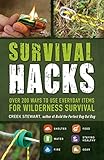 | Survival Hacks: Over 200 Ways to Use Everyday Items for Wilderness Survival (Life Hacks Series) | Simon & Schuster |  |
 | The Survival Medicine Handbook: A Guide for When Help is Not on the Way | Doom and Bloom |  |
 | U.S. Army Survival Manual FM 21-76 (Survival, Evasion, and Recovery) | Digireads.com |  |
 | The Green Beret Preparation and Survival Guide: A Common Sense, Step-By-Step Handbook To Prepare For and Survive Any Emergency (The Green Beret Guide) |  | |
 | The Worst-Case Scenario Survival Handbook: Expert Advice for Extreme Situations (Survival Handbook, Wilderness Survival Guide, Funny Books): Expert Advice for Extreme Situations | Chronicle Books |  |
 | 100 Deadly Skills: Survival Edition: The SEAL Operative's Guide to Surviving in the Wild and Being Prepared for Any Disaster | Simon & Schuster |  |
 | How to Eat in the Woods: A Complete Guide to Foraging, Trapping, Fishing, and Finding Sustenance in the Wild | BLACK DOG & LEVENTHAL PUBLISHERS |  |
 | Empath's Survival Guide | Sounds True |  |
 | Hunting & Gathering Survival Manual: 221 Primitive & Wilderness Survival Skills (Outdoor Life) | Weldon Owen |  |
 | Last Days Survival Guide: A Scriptural Handbook to Prepare You for These Perilous Times | Harrison House Publishers |  |
 | Survivor Kid: A Practical Guide to Wilderness Survival | Chicago Review Press |  |
 | Street Survival Skills: Tips, Tricks and Tactics for Modern Survival |  |
1# Tiny Survival Guide: A Life Insurance Policy in Your Pocket
With 101 illustrations, it’s visually engaging and easy to understand. The guide offers 67 essential survival skills that could make all the difference in a crisis, and the 24 gear checklists ensure you’re well-equipped and not missing anything crucial. Based on our experience the guide doesn’t just focus on physical survival; the 5 mental tips are crucial for navigating crises with clarity and determination. The 19 essential tactics are gleaned from real-life survivors, adding authenticity to the guide. With 7 self-defense tips, it offers practical advice for personal safety. The Emergency Survival section is particularly noteworthy. It’s designed to be durable and waterproof, ensuring it stands up to the elements. And, understanding that high-stress situations can cloud judgment, it includes even the most basic, yet essential, instructions. This isn’t just another survival booklet; it’s a pocket-sized treasure trove of knowledge and insights. It’s about being prepared, staying safe, and ensuring those you care about can do the same.
2# Bushcraft 101: A Field Guide to the Art of Wilderness Survival
Are you searching for hits in the realms of Sports and Travel on the New York Times Bestseller list? Check out this book – it isn’t just another outdoor guide; it’s a deep dive into truly embracing the wilderness. At its core, Canterbury’s teachings revolve around the 5Cs of Survivability: cutting tools, covering, combustion devices, containers, and cordages. Rather than overwhelming readers with endless survival tactics, he focuses on the essentials, ensuring that you’re well-equipped and knowledgeable about the most critical aspects of outdoor survival. But beyond the practical, it stands out for its philosophical angle. It’s not just about surviving in nature but truly immersing oneself in it. Under Canterbury’s tutelage, one learns to see the wilderness not as a challenge to conquer but as a home to reconnect with. For those seeking both adventure and introspection, this guide might just be the companion you need.
3# SAS Survival Handbook, Third Edition: The Ultimate Guide to Surviving Anywhere
This isn’t just a camping manual. It’s a holistic guide that covers survival in various scenarios, from wilderness adventures to urban crises. The updated edition even delves into contemporary challenges like terrorism. Wiseman emphasizes the importance of being ready. He provides insights into fundamental survival skills, such as weather prediction, and essentials like crafting a pocket survival kit. Based on our own experience from selecting the ideal campsite to building shelters and tools, the book offers a deep dive into making the wilderness feel a bit more like home. One of the standout sections is the comprehensive guide to emergency and wilderness medicine. It’s not just about handling injuries but also about adapting to different climates. The book also touches upon basic combat techniques, ensuring you’re equipped to protect yourself in dire situations. In essence, this is more than just a book; it’s a survival encyclopedia. Whether you’re a seasoned adventurer or someone looking to be better prepared for any situation, Wiseman’s wisdom is invaluable.
4# Prepper’s Long-Term Survival Guide
In our exploration of survival literature, we’ve noticed that many resources focus on short-term disasters like hurricanes or earthquakes. However, this particular book delves deeper, addressing the challenges of prolonged crises such as pandemics or grid failures. While many guides, including government pamphlets, offer advice on enduring temporary disruptions, this book stands out by preparing readers for scenarios where normalcy is disrupted for extended periods. The guide emphasizes practical methods for collecting water, ensuring hydration and hygiene. Beyond just storing food, it provides insights into sustainable practices like cultivation, hunting, and foraging. In a world without immediate medical assistance, the book offers crucial knowledge on first aid and handling medical emergencies. It’s not just about having a shelter; it’s about fortifying it. The book offers techniques and tactics to ensure your safety within your abode. A unique aspect we appreciated is the emphasis on community-building, highlighting the importance of collaboration and unity in rebuilding society. In essence, it’s a comprehensive roadmap for thriving in prolonged challenging circumstances.
5# When The Grid Goes Down
In the quest to understand urban survival better, you should look at Tony Nester’s work on the subject. His book, which focuses on self-reliance during disasters, offers a comprehensive look at both short-term (24-72 hours) and long-term (grid-down or pandemic scenarios) survival. Nester emphasizes the importance of cultivating a self-sufficient home and lifestyle, which resonates deeply in today’s unpredictable world. The book provides insights into water storage, purification, and even creating a regional water map, ensuring one’s most basic needs are met. Nester breaks down the essential food categories to stockpile, offering a practical approach to sustenance. Beyond just stocking up, the book delves into safeguarding one’s home, both inside and out, and offers personal defense strategies. Tony Nester’s three-decade experience shines through, especially given his extensive work with the military special operations community and the general public. His contributions to movies like Into the Wild and channels like Discovery and Travel further attest to his expertise. While he’s been a voice in prominent platforms like Outside Magazine, this book feels like a culmination of his vast knowledge. In summary, this guide is about thriving in the face of urban challenges. It’s a resource we believe can empower individuals and families to navigate unforeseen crises with confidence.
6# Survival Hacks
Wildlife navigation can be daunting, but Creek Stewart’s guide offers a fresh perspective on being prepared. Drawing from his vast expertise, Stewart presents a series of ingenious yet straightforward techniques to repurpose everyday items into life-saving tools. It showcases how to turn mundane items, like soda tabs and plant leaves, into invaluable survival tools. It’s fascinating to see the potential in everyday objects. The guide doesn’t just focus on small hacks. It scales up, teaching readers how to craft larger survival essentials, such as creating an emergency shelter from a trash bag. One standout section is on purifying water using just a plastic bottle and sunlight – a testament to Stewart’s innovative approach. In essence, this book isn’t just about being prepared; it’s about being resourceful. Stewart’s guide underscores the idea that with a bit of knowledge and creativity, one can face wilderness challenges head-on. It’s a refreshing take on survival that encourages adaptability and ingenuity.
7# The Survival Medicine Handbook
Navigating through the vast world of survival literature, we recently explored the 2nd edition of the medicine handbook. Authored by the knowledgeable duo, Joe Alton, M.D., and Amy Alton, A.R.N.P., who are renowned figures in the medical preparedness community, this book stands out in its niche. The Altons’ writing is straightforward, offering step-by-step guidance on managing over 100 medical conditions. It’s like having a friendly expert guiding you through each process. In situations where conventional medicine might be out of reach, the book provides alternative solutions, showcasing the authors’ comprehensive approach. In essence, this handbook is more than just a guide; it’s a beacon for those who might find themselves in dire situations without professional medical help. It’s a testament to the Altons’ dedication to empowering individuals to be their first responders when circumstances demand it.
8# U.S. Army Survival Manual FM 21-76
Imagine being lost in the wilderness, with the weight of uncertainty pressing down. The skills needed to navigate such a situation are unique and vital. This book isn’t just any guide; it’s the official survival manual of the United States Army. Its authenticity speaks volumes. Beyond the basics of shelter, water, and food, the manual dives deep into topics like evasion, navigation, and even radio communications. It’s evident that it’s designed for soldiers potentially trapped in challenging environments, but the knowledge is universally valuable. While it leans towards military situations, the skills and insights apply to anyone who might find themselves in unfamiliar terrains. This manual might be a treasure for military enthusiasts, but it’s also a valuable companion for adventurers, hikers, or anyone who wishes to be prepared for the unpredictable embrace of the wild.
9# The Green Beret Preparation and Survival Guide
Navigating the world of emergency preparedness can be overwhelming, but this comprehensive guide stands out: the International Bestselling guide on preparing for and navigating through various emergencies and disasters. Whether you’re just starting your journey into emergency preparedness or you’re a seasoned prepper, this book offers valuable insights. It’s like having a Special Forces expert guiding you through each step. From pandemics to natural disasters like earthquakes and wildfires, the guide doesn’t just skim the surface. It dives deep, ensuring you’re equipped for a myriad of situations. Our research has shown that one of the standout features is the inclusion of the Special Forces Area Study, which helps tailor your preparations to your specific circumstances, ensuring efficiency and relevance. In essence, this isn’t just another guide on emergency preparedness. It’s a well-thought-out manual that combines the expertise of elite Special Forces with practical steps for everyday individuals.
10# The Worst-Case Scenario Survival Handbook
In a world where the unexpected is just around the corner, such a handbook serves as a beacon of guidance. Whether it’s the age-old fear of quicksand or the modern dread of cyberbullies, this handbook has got you covered. From the classics like shark attacks to contemporary concerns like “fake news” or the dreaded cell phone plunge into the toilet, this book doesn’t miss a beat. The blend of expert advice with a touch of humor makes daunting situations feel approachable. It’s not just about surviving; it’s about doing it with a bit of flair! Whether it’s for the adventurous nephew or the cautious great aunt, this handbook resonates with a wide audience. It’s not just a manual; it’s a conversation starter. It’s also a blend of practicality, humor, and a touch of the extreme, making it a memorable read and a cherished gift.
11# 100 Deadly Skills: Survival Edition
Navigating the unpredictable terrains of life, both literal and metaphorical, requires a unique set of skills. Clint Emerson, a retired Navy SEAL and renowned author, brings to the table this comprehensive guide tailored for the modern-day civilian. Drawing from his rich experiences in special forces operations, Emerson offers invaluable insights that span from wilderness survival to urban crisis management. Forget the outdated survival guides of yesteryears. Our findings show that Emerson’s book is attuned to today’s challenges, making it a pertinent read for our times. The detailed illustrations accompanying each skill are a boon. In high-stress situations, simplicity is key, and these visuals ensure you grasp the concept quickly. This book doesn’t just equip you with skills; it molds your mindset, ensuring you’re always a step ahead in any crisis. For those who believe in being prepared, this book is a treasure trove of wisdom.
12# How to Eat in the Woods
Our team delved into this thorough guide penned by seasoned wilderness experts. This is a deep dive into the art of sourcing and preparing food in the wild. The authors share invaluable insights on a range of topics, from trapping and hunting various animals to identifying and harvesting edible plants. They even touch on more niche areas like collecting bird eggs and edible insects. Beyond just sourcing food, there’s a wealth of knowledge on essential skills like fire-making and cooking without the comforts of kitchen tools. For anyone looking to truly understand and embrace the wilderness, this book offers a holistic view. It’s not just about survival; it’s about thriving in nature.
13# Hunting & Gathering Survival Manual
This manual, tailored for the contemporary adventurer, delves deep into the art of foraging, hunting, and wilderness cuisine. It’s not just about surviving, but thriving and relishing the bounty nature offers. The book’s design is both aesthetically pleasing and durable, making it a worthy companion on any outdoor journey. The hands-on approach is what sets it apart. Whether you’re employing state-of-the-art tools or just your intuition and bare hands, this guide offers a spectrum of techniques to harness nature’s offerings. Plus, its emphasis on preparedness, be it a simple outdoor misadventure or a larger-scale natural calamity, is commendable. Illustrated steps simplify complex tasks, making the art of survival not just accessible but also engaging. This is a journey into self-reliance and a deeper bond with the environment.
14# Last Days Survival Guide
In this thought-provoking guide, Rick Renner delves deep into prophetic scriptures, shedding light on the tumultuous times prophesied for the end days. Drawing from the Holy Spirit’s warning, the book underscores the urgency of being spiritually prepared for the challenges that lie ahead. Based on our observations Renner offers insights into the profound meaning behind the term perilous and its significance for today’s world, practical steps to shield oneself and loved ones from potential harm. For those feeling uneasy about the current state of the world and even certain events within the Church, this book serves as a beacon, guiding readers toward spiritual resilience and triumph. It’s a roadmap for navigating and thriving in these challenging times.
Medical survival: what supplies do you need? 💡
Medical survival pertains to the ability to provide first aid and manage health issues in situations where professional medical help might not be immediately available. Having a well-equipped medical survival kit can be crucial. Here’s a list of essential supplies to consider:
✍️ Basic First Aid Supplies:
|
✍️ Medications:
|
✍️ Tools and Equipment:
|
✍️ Specialized Items (depending on the environment or personal needs):
|
✍️ Sanitation and Hygiene:
|
✍️ Communication and Documentation:
|
📢 When assembling a medical survival kit:
✅ Tailor it to your needs: Consider the specific needs of you and your group, including any known medical conditions or potential environmental challenges.
✅ Check expiration dates: Regularly review and replace any items that have expired or been used up.
✅ Education: Having supplies is essential, but knowing how to use them is equally crucial. Consider taking a basic first aid course or wilderness medicine course to be better prepared.
🚨 Remember, a medical survival kit is meant to address immediate needs and stabilize conditions until professional medical help can be obtained. Always seek professional care when possible.
FAQ 🧐
Conlusion 😊
In an unpredictable world, being prepared for unforeseen challenges is invaluable. Survival books, spanning various scenarios and environments, equip readers with the knowledge and skills to face adversity head-on. They not only teach practical skills but also instill a mindset of resilience, adaptability, and resourcefulness. Whether you’re an adventurer, a prepper, or someone who just wants to be better prepared, there’s a book out there tailored for you. Equip yourself with the wisdom of experts, and face the future with confidence.🥰❤️🔥
Affiliate Disclosure: Rotorm.com sometimes gets paid for listings, through sponsors or affiliate programs like Amazon, Optics Planet, Lucky Gunner, Brownells, Cabelas, Rainier Arms, 5.11 Tactical, Bass Pro Shop, etс. Clicking a link helps keep Rotorm.com free, at no extra cost to you!
About the author: Each article on our site is written by experts in survival and tactical equipment, gun enthusiasts, extreme travelers, military, law enforcement and desperate professionals, read about the author at the bottom of the article or visit "About Us" page.
Note: The views and opinions expressed in this article are those of the authors and do not necessarily reflect the official policy or position of any agency.


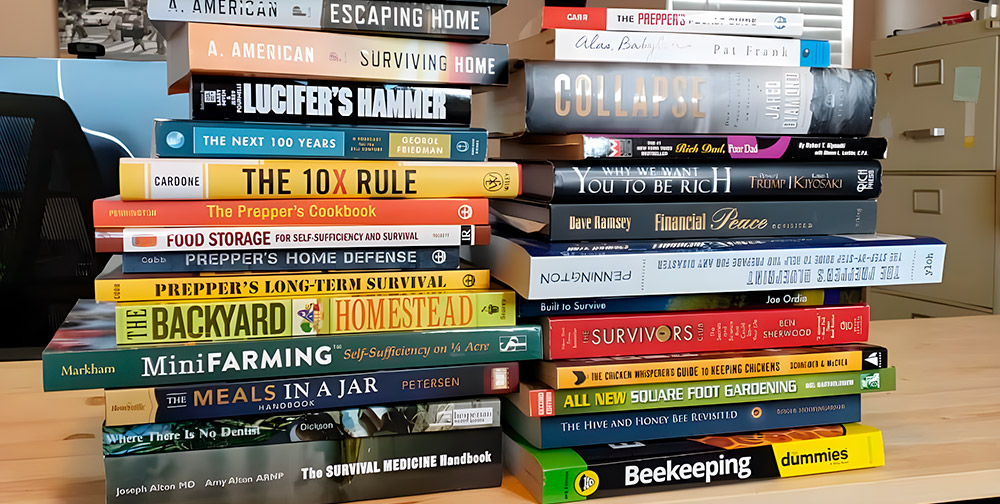
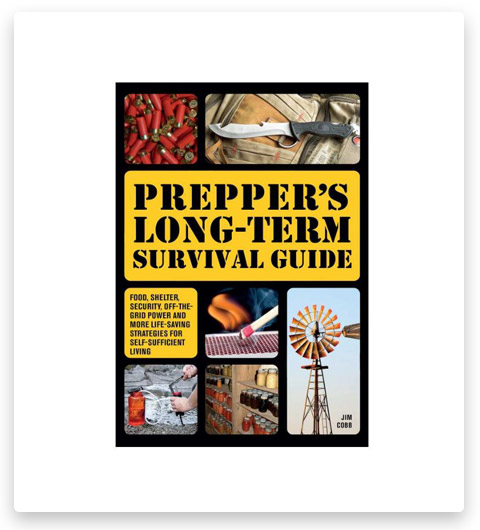
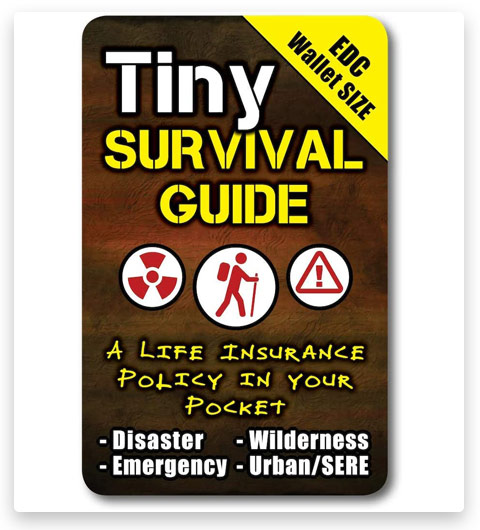
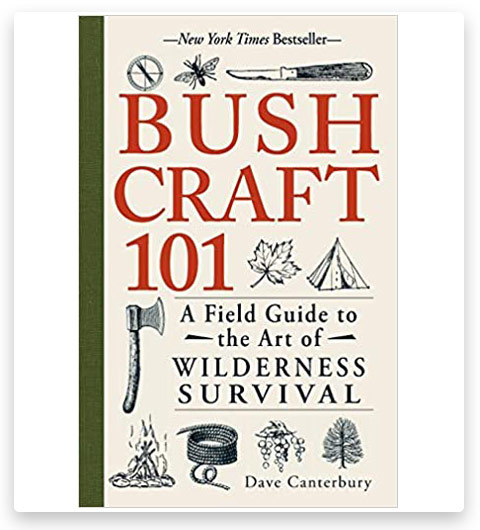
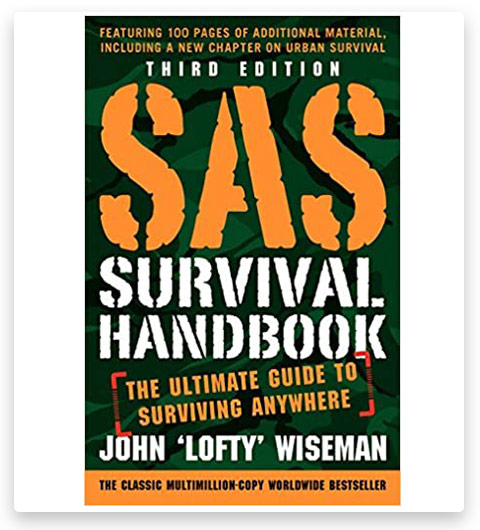
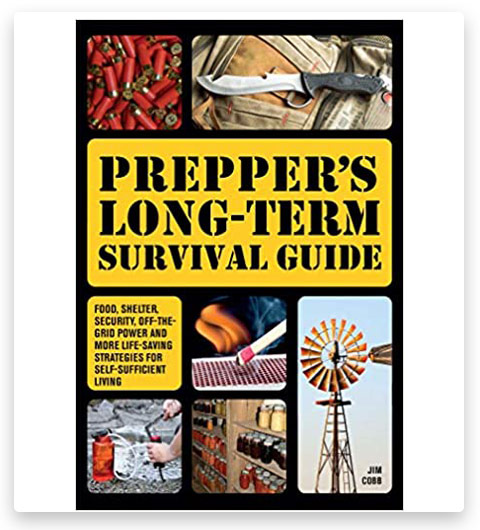
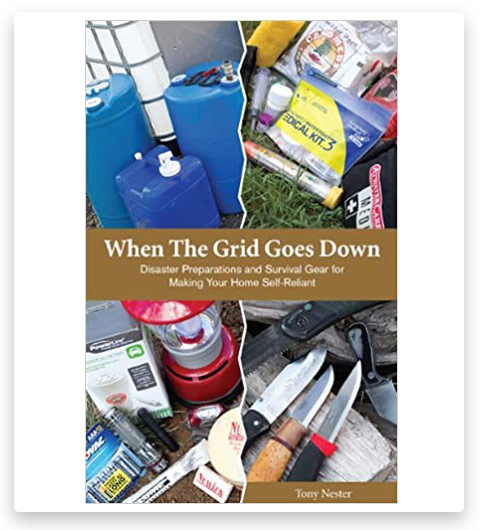
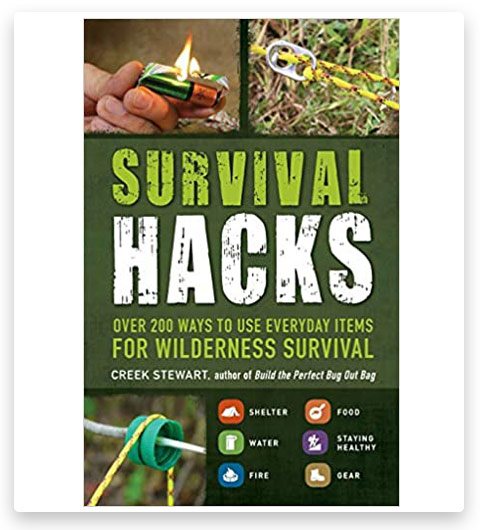
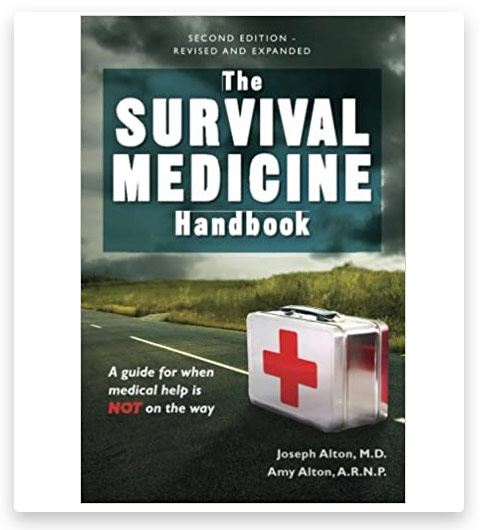
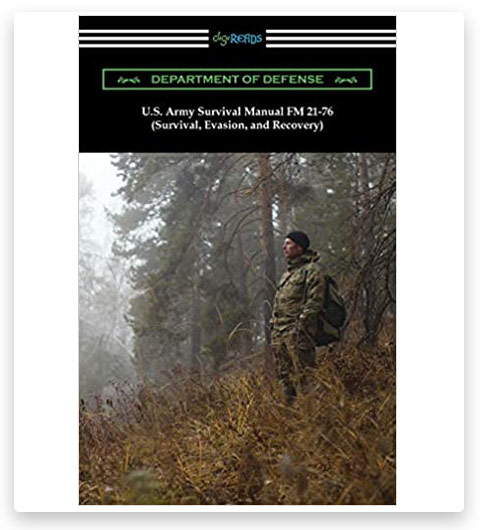
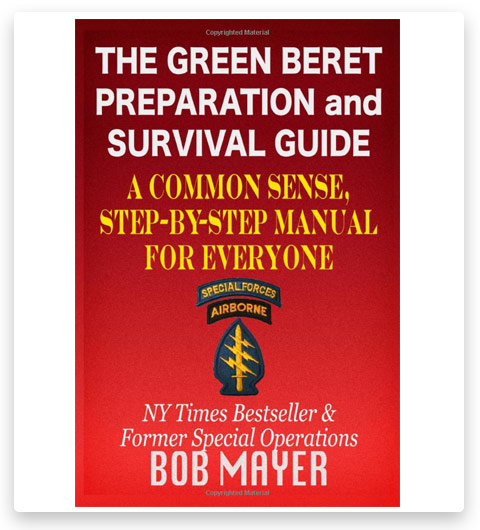
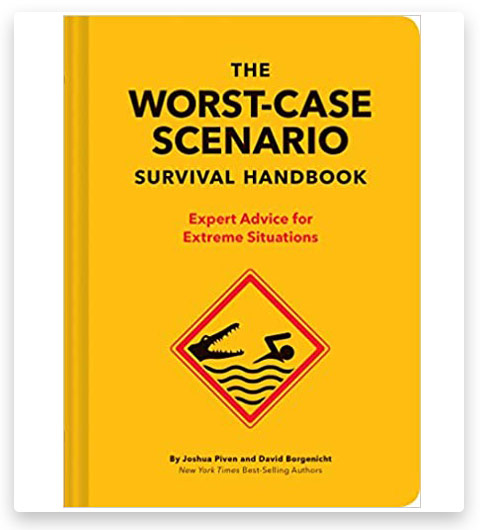
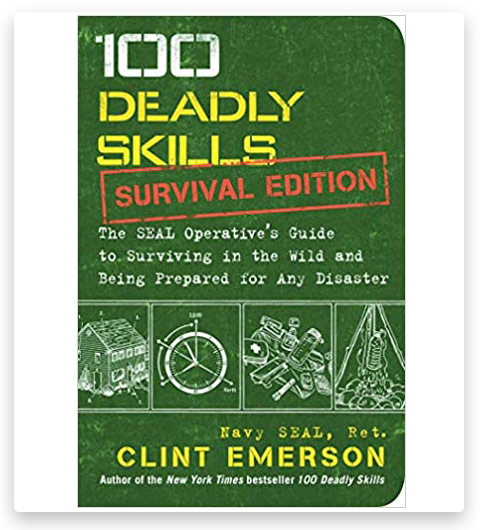
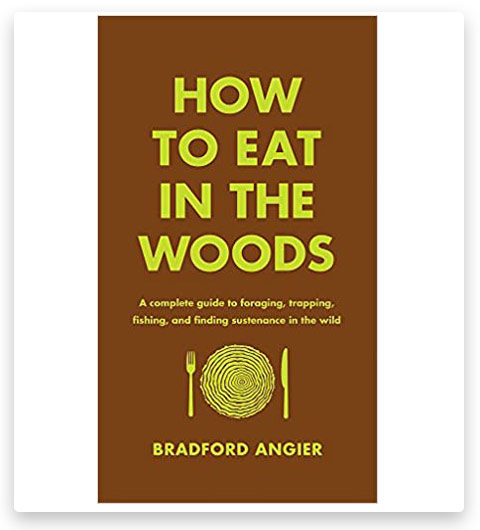
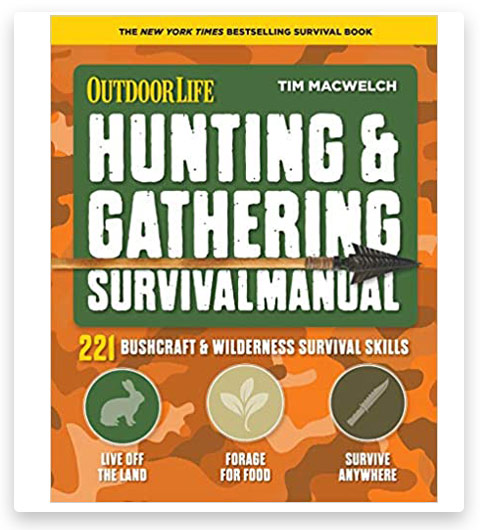
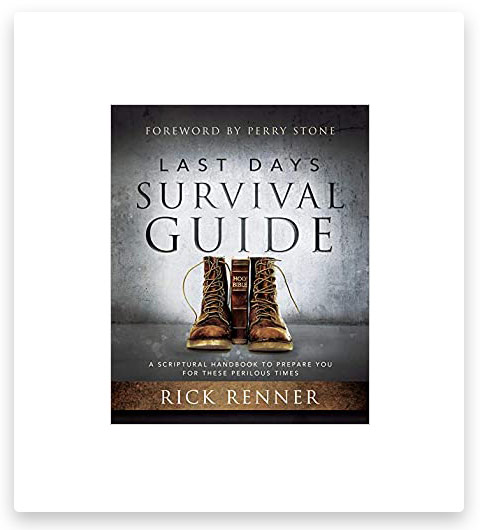

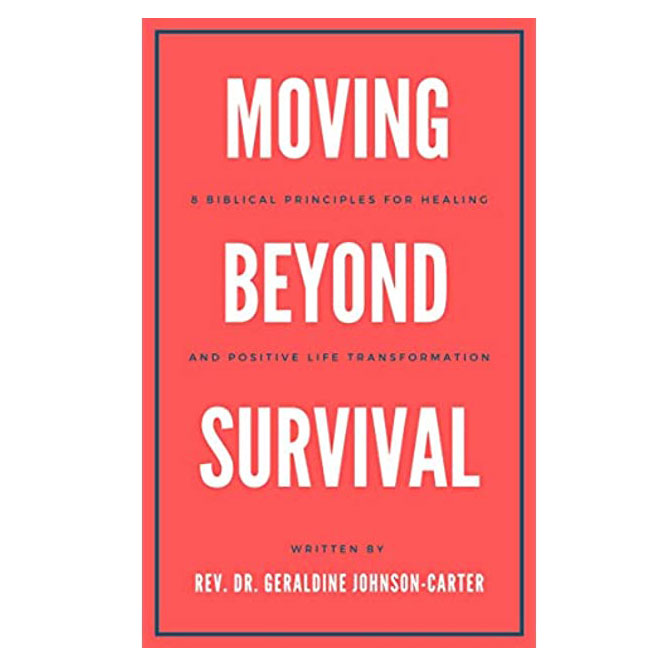
Can you reccomend a good survival book?
Undoubtedly, the SAS Survival Handbook, Third Edition: The Ultimate Guide to Surviving Anywhere comes highly recommended. This comprehensive guide is taught to the British Army’s renowned Special Air Service. The SAS, known for their significant contributions during WW2 in the African deserts against the Germans, has set the gold standard for military units worldwide. Delta Force was inspired and formed by a Green Beret Officer after serving with the SAS, recognizing the need for a similar elite unit in the U.S. The book was discovered during a college year in ’99 by a student who frequently shared it with peers. Its content, ranging from medical advice to shelter-building and navigation, proved to be captivating. Covering a vast array of survival topics, it’s a must-read for anyone interested in the subject. It’s highly recommended for its depth and breadth of information.
I think that the best survival book one might consider is actually a compilation of personal notes. By taking a few notebooks, writing supplies, and a selection of books on edible plants, wildlife, and the local environment/climate, one can craft a personalized guide while experiencing the outdoors firsthand. It’s also wise to carry a radio, additional batteries, and essential emergency equipment, just to be on the safe side.
A also highly recommended the SAS Survival Handbook, Third Edition: The Ultimate Guide to Surviving Anywhere. It’s packed with valuable information, and Wiseman truly showcases his expertise in the field.
What are the top books to purchase if I want to master a range of skills, from basic survival techniques, first-aid, and firemaking to sourcing food and water, crafting tools or weapons, building shelters, and adapting to diverse environments, from tropical regions to harsh winters?
The Prepper’s Long-Term Survival Guide is highly recommended. I received it as a gift during my childhood and was advised to memorize every page. With that knowledge, my family felt confident about them venturing into the mountains solo.
Seeking recommendations on survival guides or resources for off-the-grid living. Any ideas?
The SAS Survival Handbook, Third Edition: The Ultimate Guide to Surviving Anywhere is a top recommendation, and for those interested in bushcraft, the Bushcraft 101: A Field Guide To The Art Of Wilderness Survival is another notable mention. These are popular choices. While I haven’t gone through them in detail, the SAS Survival Handbook, Third Edition: The Ultimate Guide to Surviving Anywhere, in particular, seems to offer great value for its price.
I possess the U.S. Army Survival Manual FM 21-76 and found it somewhat useful, but I plan also to acquire the The Survival Medicine Handbook in the future.
I want to learn new wilderness survival skills. Can survival books assist me with that?
😉 Absolutely, survival books can be a great resource for learning new wilderness survival skills. They often provide detailed instructions, illustrations, and real-life scenarios which can help you understand and practice essential survival techniques. Here are a few ways in which these books can assist:
☑️ Basic Survival Skills: They teach fundamental skills such as fire-making, shelter-building, and water purification which are crucial for wilderness survival.
☑️ Food Foraging and Preparation: Survival books can guide you on how to identify, forage, and prepare wild edible plants, insects, and animals safely.
☑️ Navigation: Learn how to navigate using natural landmarks, stars, or even a compass and map through the instructions provided in survival books.
☑️ First Aid and Health: They provide information on basic first aid procedures, recognizing and treating common ailments, and maintaining hygiene in the wilderness.
☑️ Tool Making and Usage: Learn how to create and use basic tools and weapons from natural materials for various survival needs.
☑️ Understanding the Environment: Survival books often have sections dedicated to understanding different environments like forests, deserts, or snowy terrains and how to survive in them.
☑️ Mental Preparedness: They also help in preparing you mentally for survival situations, teaching patience, problem-solving, and stress management.
☑️ Real-life Survival Stories: Reading about real-life survival stories can be both motivational and educational, providing insights into what works in critical situations.
☑️ Illustrations and Step-by-step Guides: The visual illustrations and step-by-step guides make it easier to understand and practice the skills.
☑️ Checklists and Preparation Guides: They often come with checklists and preparation guides to help you gather necessary supplies and plan for wilderness adventures.
For those seeking extensive knowledge and skill research, such books are an ideal place to learn, with plenty of information available.